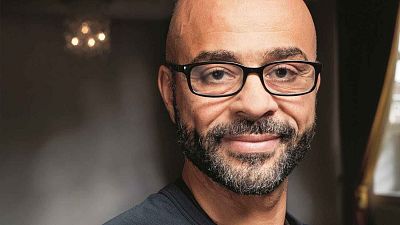Men and women are equally likely to be infertile, yet less than half of men would be willing to talk about it, according to a new study.
Historically, the attention surrounding infertility has primarily centred on women, yet 50 per cent of fertility problems within a heterosexual relationship can be due to male infertility, including low sperm count - which has more than halved worldwide in the past 50 years - poor sperm motility, impotence or erectile dysfunction and insufficient testosterone.
Almost a fifth (18 per cent) of men, however, think women are the most likely to experience fertility issues, new findings by fertility benefits company Apryl suggest, while 22 per cent aren’t really sure whether fertility problems impact men or women the most.
Approximately 7 per cent of men experience infertility, but less than half of those interviewed (44 per cent) are aware of the issues that can impact men’s fertility.
The majority of male respondents (56 per cent) also said they weren’t at all worried about their fertility; in comparison, 40 per cent of women said they were.
According to the World Health Organisation (WHO), infertility is "a disease of the male or female reproductive system, defined by the failure to achieve a pregnancy after 12 months or more of regular unprotected sexual intercourse," which can cause significant distress, stigma, and financial hardship, affecting people’s mental and psychosocial well-being.
Men are less likely to seek professional help for fertility problems
The study was conducted by Censuswide and surveyed 2,000 UK adults on behalf of Apryl, a Berlin-based fertility benefits company.
The results found that men are far less likely to seek professional help for fertility difficulties compared to women.
Almost a third (32 per cent) of women surveyed said they’d be most likely to turn to a fertility or family planning clinic in the UK as a first step if they were concerned about their fertility. By comparison, just under a fifth (19 per cent) of men said they would.
Instead, men were twice as likely as women to turn to social media platforms such as TikTok, Instagram or Facebook if they were worried about their fertility. Close to a fifth of men (20 per cent) said they wouldn’t look for help.
Tobias Kaufhold, co-founder at Apryl, which assists European businesses - including Soundcloud - to give employees access to inclusive fertility benefits deems it’s “only natural” that the first thing people do when they’re worried about their fertility is to turn to social media, but he advises caution.
"The journey to parenthood can be vulnerable, which can make us more susceptible to inaccurate claims and risky fertility advice,” he told Euronews Next, pointing out that every fertility journey is different.
"The advice we find on social media won’t be tailored to our circumstances, which means it can be a false friend and lead to misunderstandings, confusion, or unnecessary panic about what’s going on with our health".
Social media posts often fail to account for the complexity of fertility due to the need to create snappy, consumable content, he said, "but the nuance is critical".
Men feel unable to speak to friends and family about fertility worries
The study’s findings also suggest men are also far less likely than women to speak to friends or family about their fertility.
Just 44 per cent of men surveyed said they’d feel comfortable discussing their fertility issues with a friend, and 49 per cent said they’d be happy to do so with a family member. 62 per cent of women say they wouldn't mind discussing their fertility with friends.
The findings point to a wider historical trend of fertility pictured as a “female” issue, said Apryl in a statement.
The most impactful measure we can take to address the knowledge gap around infertility "is to make fertility care cheaper and more accessible for everyone," says Kaufhold, adding that sadly "the way fertility care is structured and delivered in many countries means that accessing it is a privilege, rather than a right. This needs to change".
In March this year, research published in the journal Human Reproduction Open found that the direct medical costs paid by patients for a single round of in vitro fertilization (IVF) in low and middle-income countries are often higher than the average annual income. In other words, it is virtually impossible for people in these countries to have access to fertility treatments.
Making fertility treatments, including fertility testing, more readily available, could encourage people to think about their fertility earlier and plan for the future, which would also help close the knowledge gap around infertility, says Apryl’s co-founder.
Egg freezing, a medical practice for preserving a woman’s fertility, is known to be pricey - and its use is tightly restricted in some countries like France.
The typical cost of a single egg-freezing cycle across the UK and the EU starts at around €3,000, to which one needs to add the cost of later thawing the eggs for in vitro fertilisation (IVF) - procedures which can reach a total of €10,000 or more.
According to a new report published today by WHO, around 17.5 per cent of the adult population – roughly 1 in 6 worldwide - are affected by infertility in their lifetime.
"The report reveals an important truth: infertility does not discriminate," said Dr Tedros Adhanom Ghebreyesus, WHO Director-General, in a statement.
"The sheer proportion of people affected shows the need to widen access to fertility care and ensure this issue is no longer sidelined in health research and policy so that safe, effective, and affordable ways to attain parenthood are available for those who seek it".
"We need to fundamentally rethink how fertility treatment is funded and delivered if we are ever to widen access and ensure starting a family is a basic human right," notes Kaufhold.



